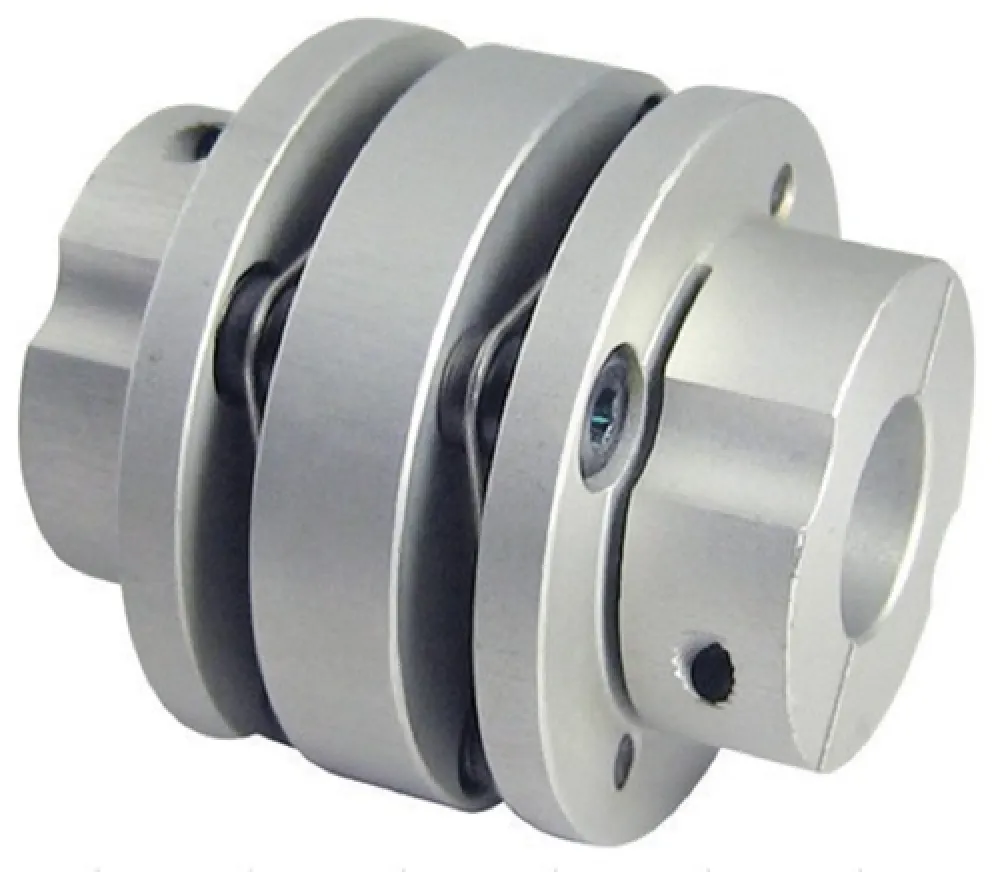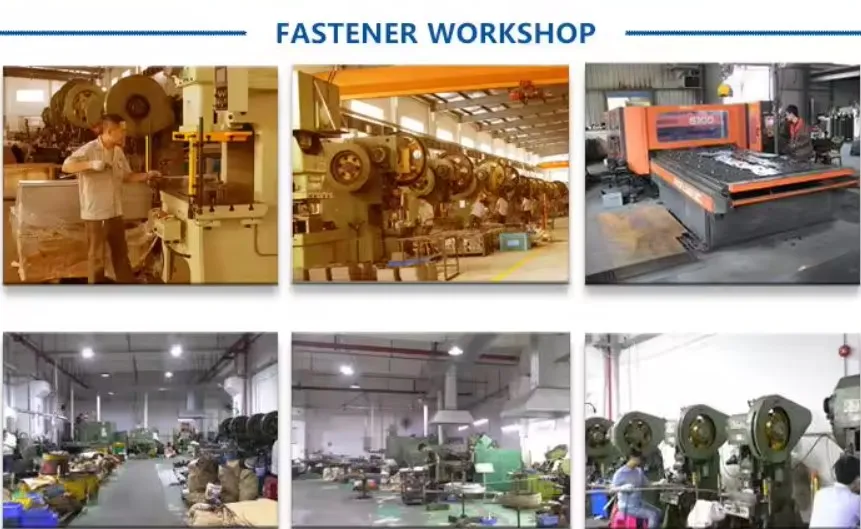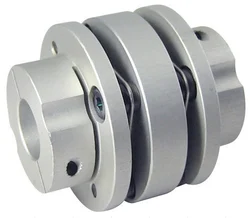Flexible Flange Coupling for Pumps
Introduction to Flexible Flange Coupling
Flexible flange couplings are critical components in pump systems, providing a reliable and efficient connection between the pump and the driving motor. These couplings are designed to accommodate misalignment and reduce the transmission of shock loads, ensuring smooth and continuous operation.
The Anatomy of a Flexible Flange Coupling
The flexible flange coupling consists of two flanges, a flexible element, and bolts. The flanges are typically made from robust materials such as steel or cast iron. The flexible element, often constructed from rubber or elastomer, allows for flexibility and absorbs any misalignment or vibrations.
Applications in Pump Systems
Flexible flange couplings are widely used in various pump systems, including centrifugal pumps, gear pumps, and diaphragm pumps. They are particularly beneficial in applications where alignment precision is challenging to achieve or maintain.
Benefits of Using Flexible Flange Couplings
The primary advantages of flexible flange couplings include their ability to accommodate misalignment, reduce vibration and noise, protect against overload, and prolong the lifespan of connected machinery. They also simplify maintenance and installation processes.
How to Install Flexible Flange Couplings
Proper installation of flexible flange couplings is crucial for optimal performance. The process involves aligning the flanges, securing them with bolts, and ensuring the flexible element is correctly positioned. Misalignment should be minimized to enhance the coupling’s effectiveness.
Material Considerations
The choice of materials for both the flanges and the flexible element is vital. Steel and cast iron are popular for their strength and durability, while the flexible element is typically made of rubber or elastomer to provide the necessary flexibility and shock absorption.
Maintenance Tips
Regular inspection and maintenance of flexible flange couplings are essential to ensure their longevity. This includes checking for wear and tear on the flexible element, ensuring bolts are tightly secured, and verifying the alignment of connected components.
Common Issues and Troubleshooting
Despite their robust design, flexible flange couplings can experience issues such as misalignment, wear of the flexible element, and bolt loosening. These problems can generally be addressed through regular maintenance and timely replacements of worn parts.
What are the Advantages of Flexible Coupling?

- Misalignment Compensation: Flexible couplings can accommodate angular, parallel, and axial misalignments, reducing the stress on connected equipment.
- Vibration Damping: The flexible element absorbs vibrations, minimizing noise and protecting sensitive components from damage.
- Shock Load Mitigation: They reduce the transmission of shock loads between the driving and driven equipment, preventing sudden failures.
- Ease of Installation: Flexible couplings simplify the installation process by accommodating minor misalignments, reducing the need for precise alignment.
- Extended Equipment Life: By absorbing shock and compensating for misalignment, flexible couplings help extend the lifespan of connected machinery.
What is the Difference Between Solid and Flexible Coupling?

- Misalignment Tolerance: Solid couplings require precise alignment, while flexible couplings can accommodate misalignments, making them more forgiving in installation.
- Vibration Absorption: Flexible couplings absorb vibrations, whereas solid couplings transmit vibrations directly, which can lead to noise and equipment wear.
- Shock Load Resistance: Flexible couplings mitigate shock loads, protecting the equipment, while solid couplings may transfer these loads, causing potential damage.
- Application Suitability: Solid couplings are suitable for rigid systems with precise alignment, whereas flexible couplings are ideal for systems requiring flexibility and vibration damping.
What is the Problem with Flexible Couplings?
- Wear and Tear: The flexible element can degrade over time, particularly in harsh operating conditions, necessitating regular inspection and replacement.
- Heat Sensitivity: Excessive heat can damage the flexible element, reducing its efficiency and lifespan.
- Limited Load Capacity: Flexible couplings may not be suitable for applications involving very high loads, where solid couplings might be more appropriate.
How to Choose or Customize a Suitable Flexible Flange Coupling

- Load Requirements: Determine the maximum load the coupling will need to handle to ensure it can operate effectively without failure.
- Misalignment Tolerance: Assess the expected misalignment in the system and choose a coupling that can accommodate it.
- Material Compatibility: Consider the materials of the coupling in relation to the operating environment, ensuring they are suitable and durable.
- Temperature Range: Ensure the coupling can withstand the operating temperature range of the application to prevent premature failure.
- Maintenance and Accessibility: Consider ease of maintenance and whether the coupling location allows for easy inspection and replacement.
About HZPT
HZPT, established in 2006, is a professional manufacturer specializing in the research and production of high-precision couplings, ball screw support units, motor brackets, and motion modules. Our coupling product line includes servo motor couplings, stepper motor couplings, miniature motor couplings, encoder couplings, and more.
Our Advantages
- Advanced Technology: We employ cutting-edge technology in our manufacturing processes, ensuring high-quality and reliable products.
- In-House R&D Center: Our dedicated research and development center allows us to innovate and continuously improve our products.
- Self-Owned Processing and Testing Systems: With complete control over our processing and testing systems, we guarantee the precision and performance of our products.
- ISO 9001:2015 Certification: Our operations adhere to international quality standards, ensuring consistent and reliable product quality.
- ROHS Compliance: Our products comply with ROHS standards, emphasizing our commitment to environmental responsibility.
Extensive Product Line
Currently, we offer over 30 product lines that find applications in high-precision connections and various automated machinery in industries such as electronics, solar, photovoltaic, machine tools, packaging, molds, medical, and printing. Our products are recognized and widely used by top-tier clients globally, including those from Japan, the United States, Germany, Israel, Malaysia, Singapore, and Taiwan.
Why Choose Our Flexible Flange Couplings?
Choosing our flexible flange couplings ensures you receive a product that meets the highest standards of quality and performance. We are committed to providing solutions that enhance the efficiency and reliability of your pump systems. Partner with us to experience the best in coupling technology, backed by our extensive expertise and dedication to customer satisfaction. Reach out to us today to learn more and start a successful collaboration.